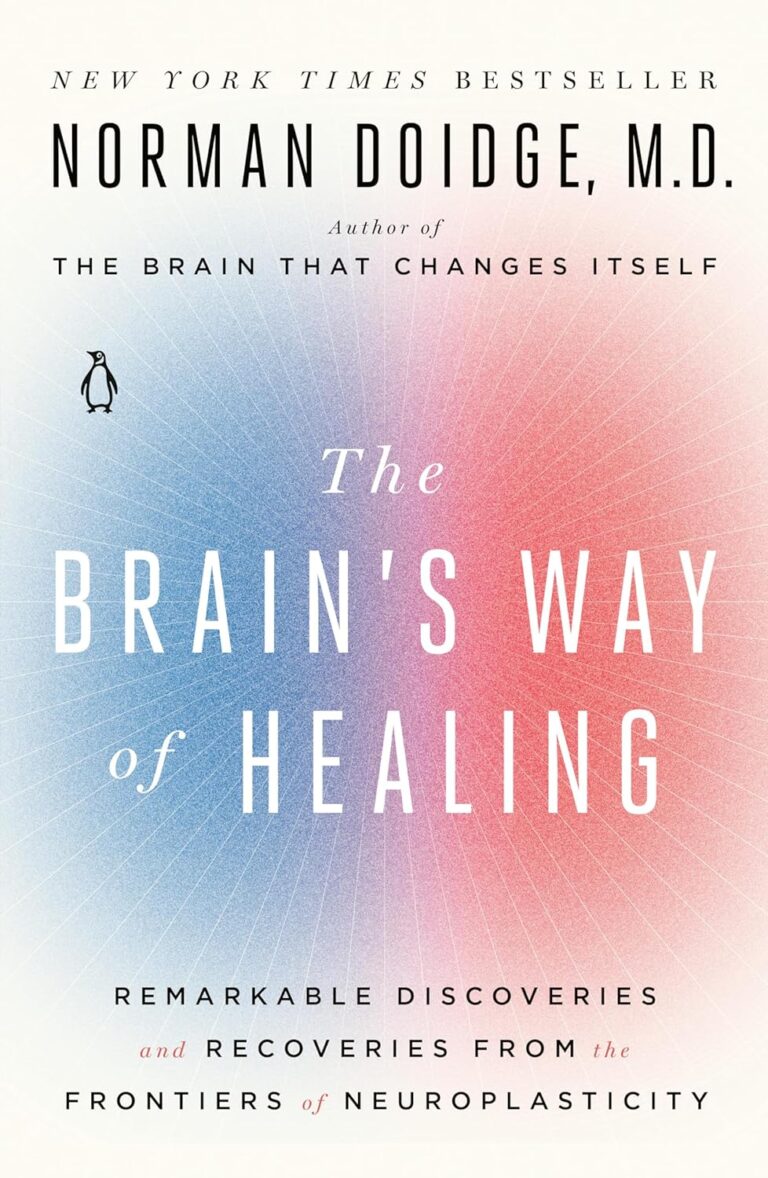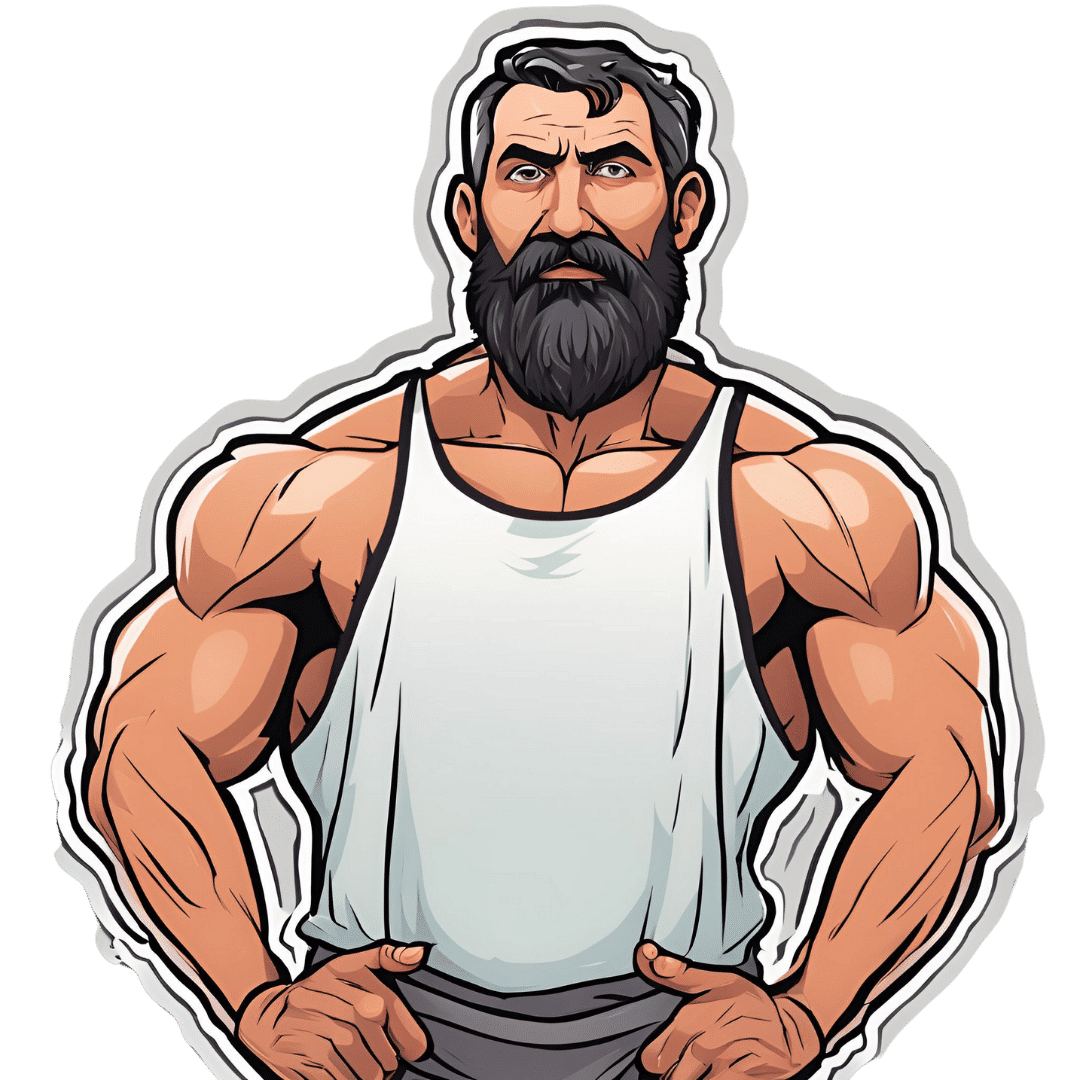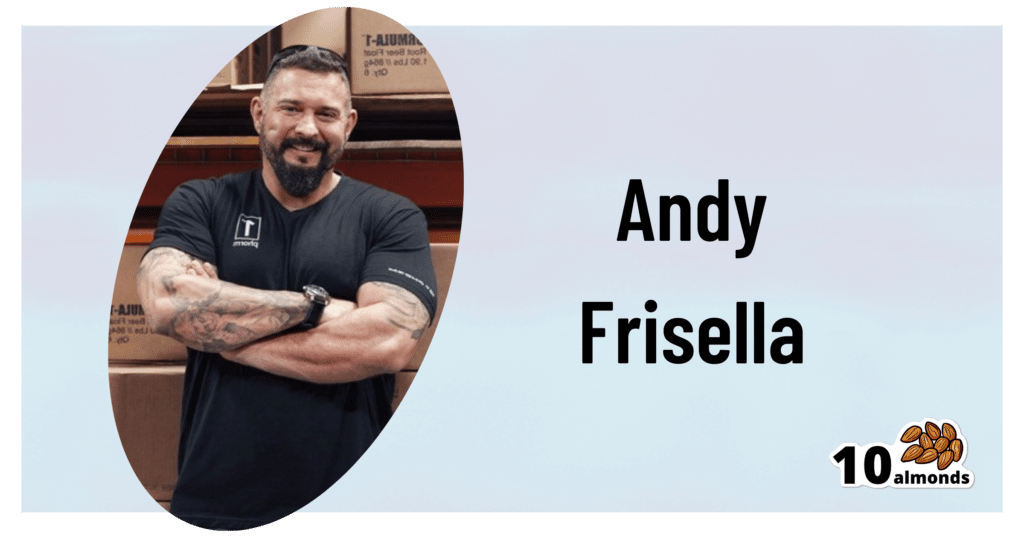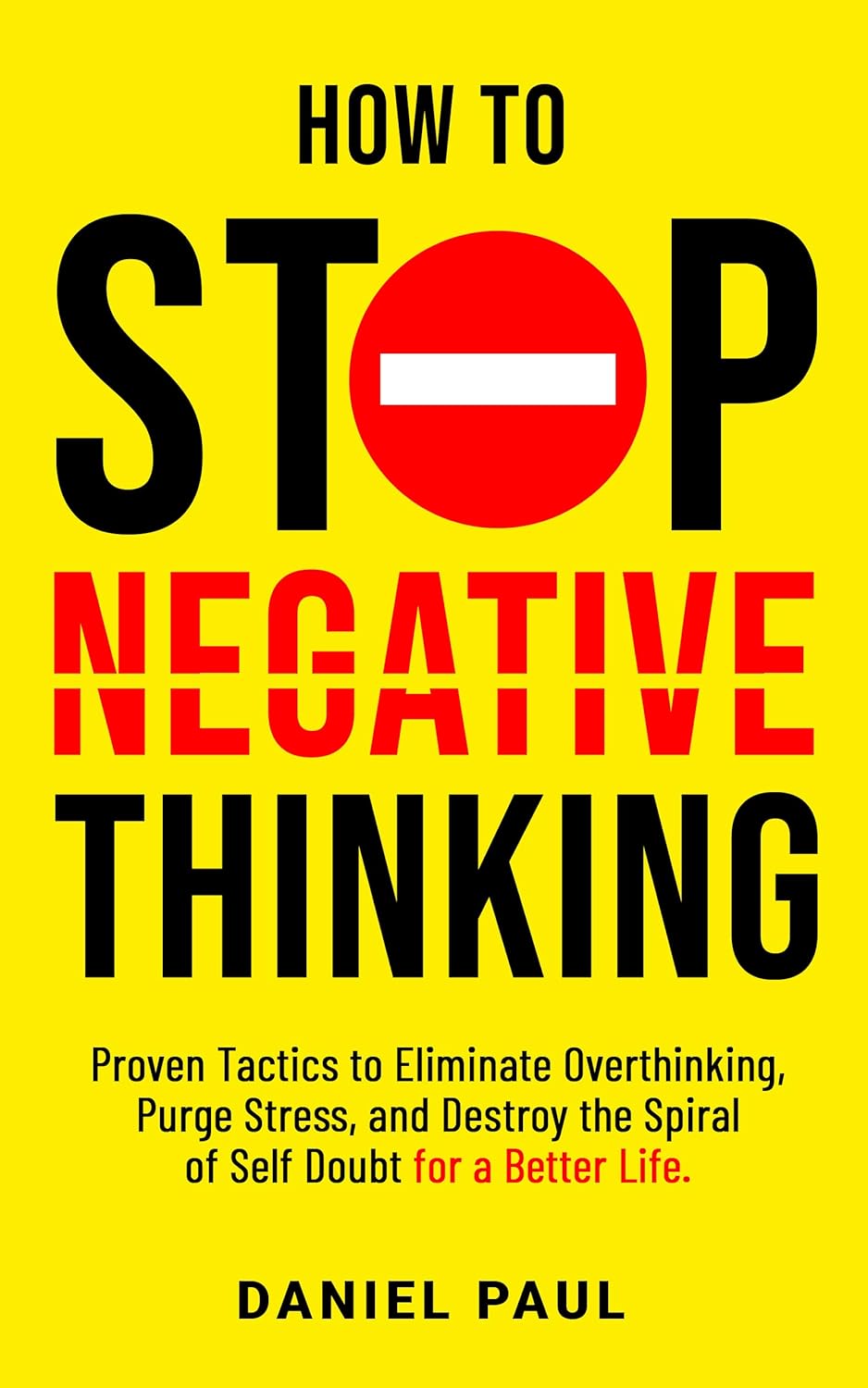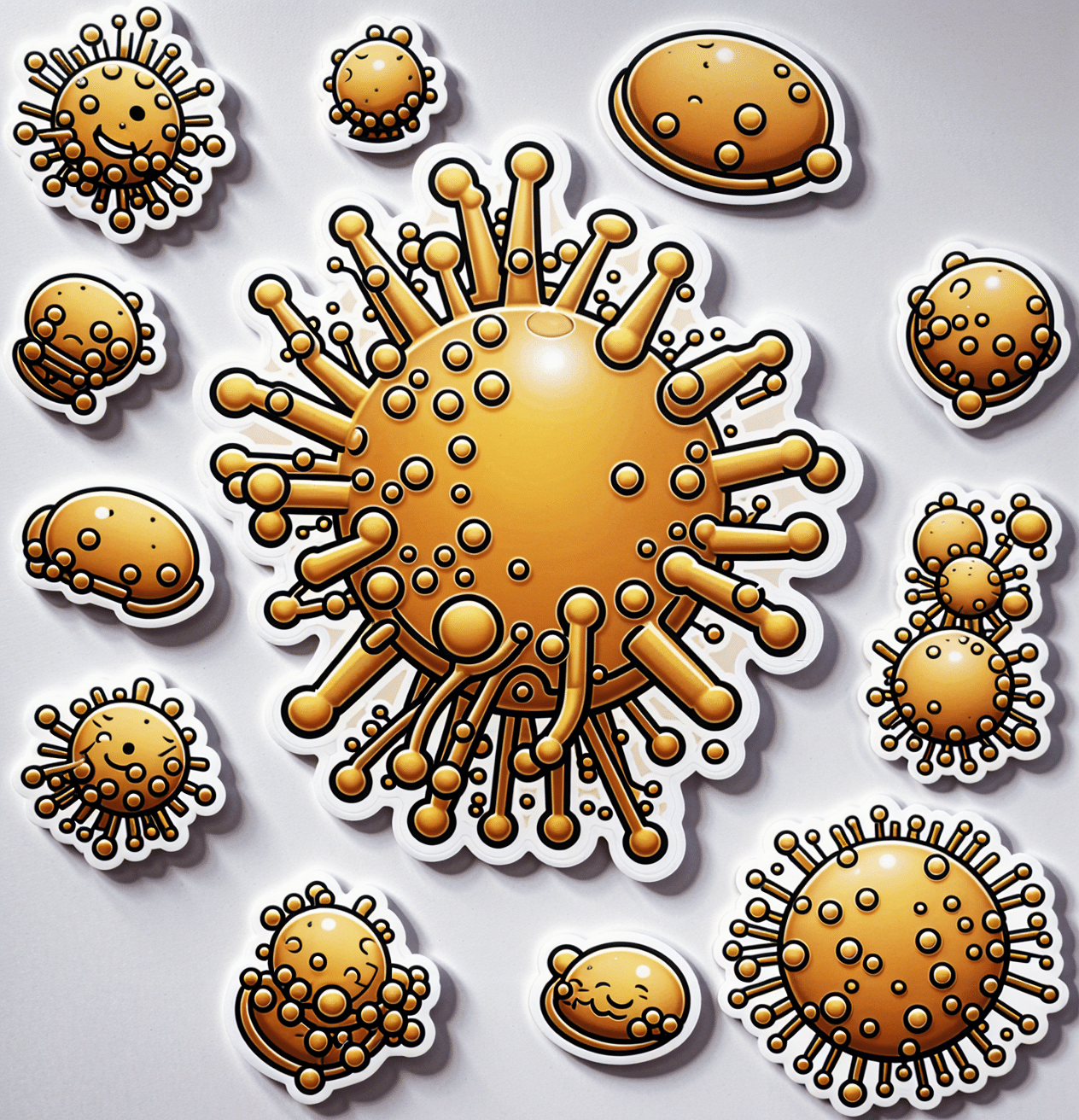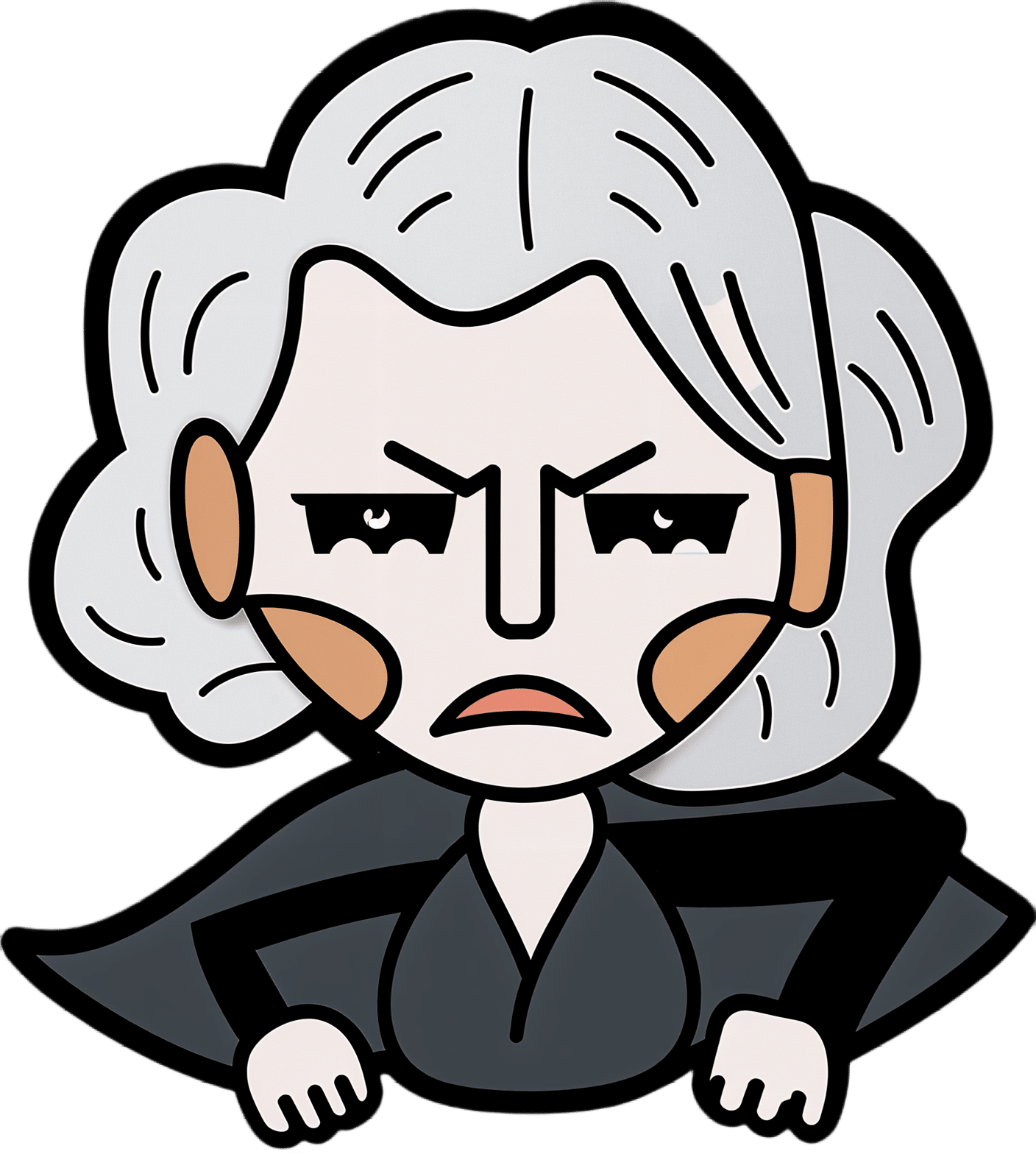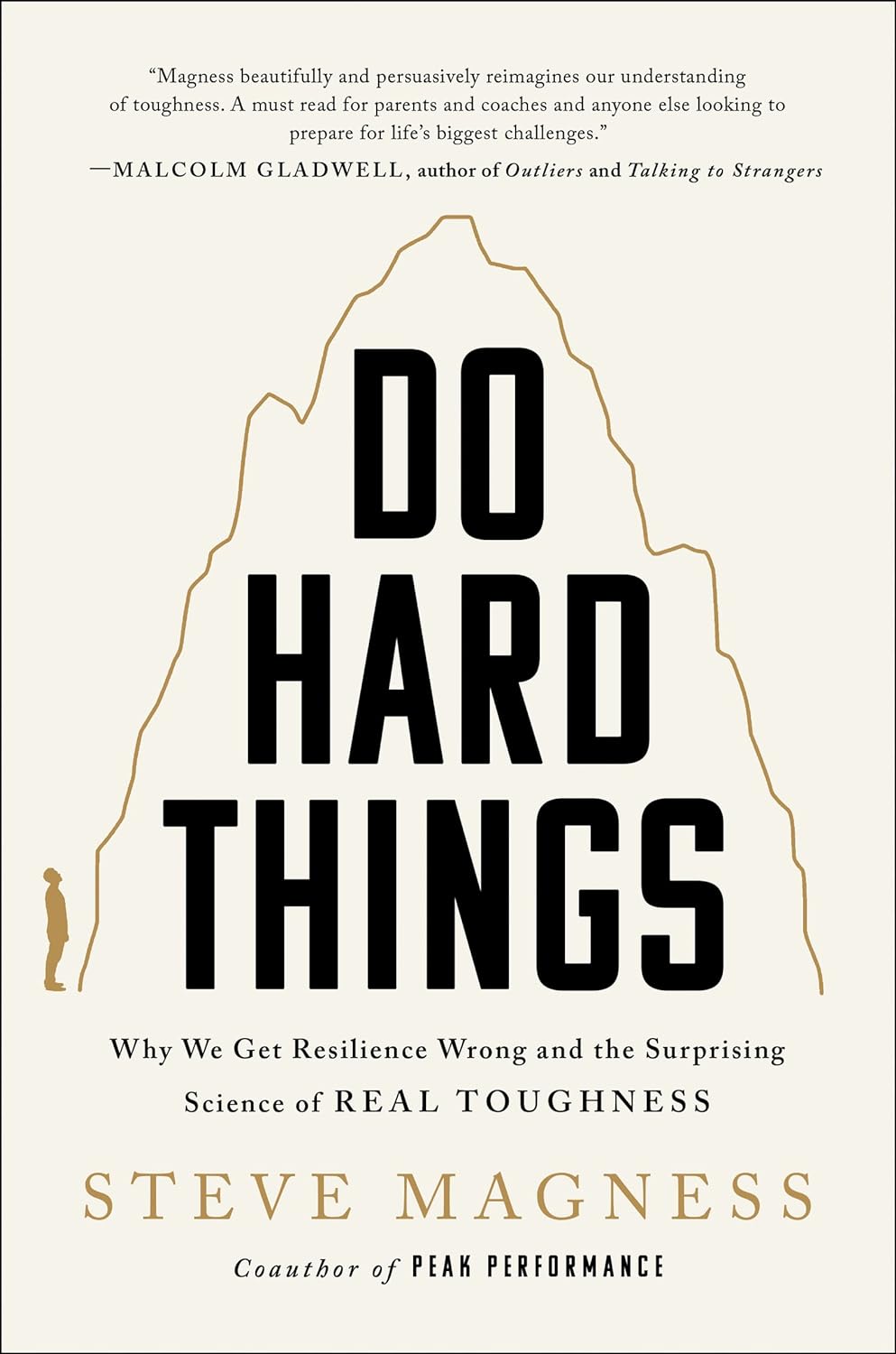
Do Hard Things – by Steve Magness
10almonds is reader-supported. We may, at no cost to you, receive a portion of sales if you purchase a product through a link in this article.
It’s easy to say that we must push ourselves if we want to achieve worthwhile things—and it’s also easy to push ourselves into an early grave by overreaching. So, how to do the former, without doing the latter?
That’s what this book’s about. The author, speaking from a background in the science of sports psychology, applies his accumulated knowledge and understanding to the more general problems of life.
Most of us are, after all, not sportspeople or if we are, not serious ones. Those few who are, will get benefit from this book too! But it’s mostly aimed at the rest of us who are trying to work out whether/when we should scale up, scale back, change track, or double down:
- How much can we really achieve in our career?
- How about in retirement?
- Do we ever really get too old for athletic feats, or should we keep pressing on?
Magness brings philosophy and psychological science together, to help us sort our way through.
Nor is this just a pep talk—there’s readily applicable, practical, real-world advice here, things to enable us to do our (real!) best without getting overwhelmed.
The style is pop-science, very easy-reading, and clear and comprehensible throughout—without succumbing to undue padding either.
Bottom line: this is a very pleasant read, that promises to make life more meaningful and manageable at the same time. Highly recommendable!
Click here to check out Do Hard Things, and get the most out of life!
Don’t Forget…
Did you arrive here from our newsletter? Don’t forget to return to the email to continue learning!
Recommended
Learn to Age Gracefully
Join the 98k+ American women taking control of their health & aging with our 100% free (and fun!) daily emails:
-
Ready… Set… Flow!
10almonds is reader-supported. We may, at no cost to you, receive a portion of sales if you purchase a product through a link in this article.
Time to make your new year plans? Or maybe you’ve already made a list, and you’re checking it twice. If so, now’s the time to make sure that your new year’s plans will flow:
“Flow”, as you may be aware, is the psychological state generally defined as “a state in which we feel good about what we’re doing, and just keep doing it, at a peak performance level”; the term was coined by psychologist Mihaly Csikszentmihalyi and has risen to popularity since.
We wrote about it a little before, here:
Morning Routines That Just Flow
The above article details how to start the perfect day, but how to start the perfect year? Firstly, it’s good to get the jump on the new year a little; see:
The Science Of New Year’s Pre-Resolutions
…and we also agree with Dr. Faye Bate, who preaches taking the path of least resistance when it comes to healthy habits:
How To Actually Start A Healthy Lifestyle In The New Year
Because…
Getting into the flow
The most hydrating drink is the one that [contains adequate water and] you will actually drink. The best exercise is the one you’ll do. The best sleep is the sleep you can actually get. And so on.
We see this—or rather its evil counterpoint—a lot in diet culture. People frame their willpower against the temptations of donuts and whatever, and make Faustian bargains whereby they will eat food they find boring in the hopes it will bring them good health. And it won’t. Because, they’ll give up quickly.
Instead, each part of our healthy life has to be engaged with with a sense of flow. Again, that’s: “a state in which we feel good about what we’re doing, and just keep doing it, at a peak performance level”
So we need to find healthy recipes we like (check out our recipe section!), we need to find exercise that we like, we need to find an approach to sleep that the Geneva Convention wouldn’t consider a kind a torture, and so forth. And, ideally, not just “like” in the sense of “this is tolerable” but “like” in the sense of “I am truly passionate about this thing”.
And that’s going to look different for each of us.
Running is a great example of something that some people truly love, whereas others will do almost anything to avoid.
And food? We’ve written before about the usefulness of a “to don’t” list; it’s like a “to do” list, but it’s things we’re not going to even try to do. For example, a person with two addictions is usually advised to quit one at a time, so quitting the other would go on a “to don’t” list for now. The same goes for food; you need to enjoy what you’re eating or you won’t “feel good about what we’re doing, and just keep doing it”, per flow. So, do not deprive yourself; it won’t work anyway; just pick one healthy change to make, and then queue up any other changes for once the first one has started feeling natural to you.
For more on “to don’t” lists and other such tricks, see: How To Keep On Keeping On… Long Term!
Staying in the flow
…is not usually a problem, you would think, because “…and just keep doing it, at peak performance level” but the fact is, sometimes we get kicked out of our flow by something external. We covered some of that in the above-linked “How To Keep On Keeping On” article, such as figuring out showstoppers in advance (for example, “if I get an injury, I will rest until it is healed”) and ideally, back-up plans.
For example, let’s say you have your dietary plan all worked out, then you are invited to someone’s birthday celebration a couple of weeks in, and you don’t want to rain on their parade, so you figure out for yourself in advance how you are going to mitigate any harm to your plans, e.g. “I will simply choose the healthiest option available, and not worry if it doesn’t meet my usual standards” or “I will simply fast” if that’s an appropriate thing for you (for some it might be, for some it might not be).
For more on this, see:
How To Avoid Slipping Into (Bad) Old Habits
Take care!
Share This Post
-
What Is “75 Hard”?
10almonds is reader-supported. We may, at no cost to you, receive a portion of sales if you purchase a product through a link in this article.
This is Andy Frisella. He’s not a doctor, scientist, nutritionist, personal trainer, or professional athlete, but he has kicked off a viral fitness challenge, so let’s take a look at it:
What it is
Firstly, Frisella asserts that it’s not a fitness challenge, but rather, he describes it as a “transformative mental toughness program”.
Here’s what it consists of:
- Follow a healthy diet plan with no deviations from it (i.e. no “cheat days”)
- Abstain from alcohol
- Exercise 2x per day, 45 minutes each
- One of the exercise sessions each day must be outside
- No rest days
- Drink 3.5 liters of water per day
And the duration? 75 days, hence the name of the
fitness challengetransformative mental toughness program.Why it is
Frisella’s rationale is:
- we must cultivate mental toughness by doing hard things
- allowing ourselves any deviation would be a sign of mental weakness
- if we allow ourselves to deviate, it becomes a habit
For this reason, he does not “allow” any substitutions, for example if somebody wants to do such-and-such a thing slightly differently instead. We put “allow” in quotation marks because of course, he’s not the boss of you, but per the rules of his challenge, at least.
These reasonings are in and of themselves somewhat sound, however, we at 10almonds would argue:
- before doing hard things, it is good to first consider “is it a good idea?” (amputating your leg using only a spork is a “hard thing”, and demonstrates incredible mental toughness, but that doesn’t make it a good idea)
- while being able to decide to do a thing and then do it is great characteristic to have, it’s good to first consider science; for example, restrictive diets with no flexibility simply do not work, and our bodies do require adequate rest, especially if being pushed through hard things, or problems will happen (injuries, illnesses, etc).
- while it’s true that allowing ourselves to deviate can become a habit, it’s good to first consider what habits we want to make, and make those habits, instead of potentially unsustainable or even simply unpleasant ones.
See also: What Flexible Dieting Really Means: When Flexibility Is The Dish Of The Day
And for that matter: How To Really Pick Up (And Keep!) Those Habits
Want a “75 Gentle” instead?
If you like the idea of making new habits, but are not sure if extreme (and perhaps arbitrary) standards are the ones you want to hold, check out:
Cori Lefkowith’s 25 Healthy Habits That Will Change Your Life
Take care!
Share This Post
-
How to Stop Negative Thinking – by Daniel Paul
10almonds is reader-supported. We may, at no cost to you, receive a portion of sales if you purchase a product through a link in this article.
Just think positive thoughts” is all well and good, but it doesn’t get much mileage in the real world, does it?
What Daniel Paul offers is a lot better than that. Taking a CBT approach, he recommends tips and tricks, gives explanations and exercises, and in short, puts tools in the reader’s toolbox.
But it doesn’t stop at just stopping negative thinking. Rather, it takes a holistic approach to also improve your general life…
- Bookending your day with a good start and finish
- Scheduling a time for any negative thinking that does need to occur (again with the useful realism!)
- Inviting the reader to take on small challenges, of the kind that’ll have knock-on effects that add and multiply and compound as we go
The format is very easy-reading, and we love that there are clear section headings and chapter summaries, too.
Bottom line: definitely a book with the potential to improve your life from day one, and that’ll keep you coming back to it as a cheatsheet and references source.
Get your copy of “How to Stop Negative Thinking” from Amazon today!
Share This Post
Related Posts
-
What Curiosity Really Kills
10almonds is reader-supported. We may, at no cost to you, receive a portion of sales if you purchase a product through a link in this article.
Curiosity Kills The Neurodegeneration
Of the seven things that Leonardo da Vinci considered most important for developing and maintaining the mind, number one on his list was curiosity, and we’re going to be focussing on that today.
In case you are curious about what seven things made Leonardo’s* list, they were:
- Curiosità: an insatiably curious approach to life and an unrelenting quest for continuous learning
- Dimostrazione: a commitment to test knowledge through experience, persistence, and a willingness to learn from mistakes
- Sensazione: the continual refinement of the senses, especially sight, as a means to enliven experience
- Sfumato: (lit: “gone up in smoke”) a willingness to embrace ambiguity, paradox, and uncertainty
- Arte/Scienza: the curated balance of art and science, imagination and logic
- Corporalità: the cultivation of physical grace, ambidexterity, and fitness
- Connessione: a recognition of and appreciation for the interconnectedness of phenomena (systems-based thinking)
*In case you are curious why we wrote “Leonardo” and not “da Vinci” as per our usual convention of shortening names to last names, da Vinci is not technically a name, in much the same way as “of Nazareth” was not a name.
You can read more about all 7 of these in a book that we’ve reviewed previously:
How to Think Like Leonardo da Vinci: Seven Steps to Genius Every Day – by Michael J. Gelb
But for now, let’s take on “curiosity”!
If you need an extra reason to focus on growing and nurturing your curiosity, it was also #1 of Dr. Daniel Levitin’s list of…
The Five Keys Of Aging Healthily
…and that’s from a modern-day neuroscientist whose research focuses on aging, the brain, health, productivity, and creativity.
But how do we foster curiosity in the age of Google?
Curiosity is like a muscle: use it or lose it
While it’s true that many things can be Googled to satisfy one’s curiosity in an instant…
- do you? It’s only useful if you do use it
- is the top result on Google reliable?
- there are many things that aren’t available there
In short: douse “fast
foodinformation” sources, but don’t rely on them! Not just for the sake of having correct information, but also: for the actual brain benefits which is what we are aiming for here with today’s article.If you want the best brain benefits, dive in, and go deep
Here at 10almonds we often present superficial information, with links to deeper information (often: scholarly articles). We do this because a) there’s only so much we can fit in our articles and b) we know you only have so much time available, and/but may choose to dive deeper.
Think of it in layers, e.g:
- Collagen is good for joints and bones
- Collagen is a protein made of these amino acids that also requires these vitamins and minerals to be present in order to formulate it
- Those amino acids are needed in these quantities, of which this particular one is usually the weakest link that might need supplementing, and those vitamins and minerals need to be within this period of time, but not these ones at the exact same time, or else it will disrupt the process of collagen synthesis
(in case you’re curious, we covered this here and here and offered a very good, very in-depth book about it here)
Now, this doesn’t mean that to have a healthy brain you need to have the equivalent knowledge of an anatomy & physiology degree, but it is good to have that level of curiosity in at least some areas of your life—and the more, the better.
Top tips for developing a habit of curiosity
As you probably know, most of our endeavors as humans go best when they are habits:
How To Really Pick Up (And Keep!) Those Habits
And as for specifically building a habit of curiosity:
- Make a deal with yourself that when someone is excited to tell you what they know about something (no matter whether it is your grandkid, or the socially awkward nerd at a party, or whoever), listen and learn, no matter the topic.
- Learn at least one language other than your native language (presumably English for most of our readers). Not only does learning a language convey a lot of brain benefits of its own, but also, it is almost impossible to separate language learning from cultural learning, and so you will learn a lot about another culture too, and have whole new worlds opened up to you. Again, more is better, but one second language is already a lot better than none.
- Make a regular habit of going to your local library, and picking out a non-fiction book to take home and read. This has an advantage over a bookshop, by the way (and not just that the library is free): since library books must be returned, you will keep going back, and build a habit of taking out books.
- Pick a skill that you’d like to make into a fully-fledged hobby, and commit to continually learning as much about it as you can. We already covered language-learning above, but others might include: gardening (perhaps a specific kind), cooking (perhaps a specific kind), needlecraft (perhaps a specific kind), dance (perhaps a specific kind). You could learn a musical instrument. Or it could be something very directly useful, like learning to be a first responder in case of emergencies, and committing to continually learning more about it (because there is always more to learn).
And when it comes to the above choices… Pick things that excite you, regardless of how practical or not they are. Because that stimulation that keeps on driving you? That’s what keeps your brain active, healthy, and sharp.
Enjoy!
Don’t Forget…
Did you arrive here from our newsletter? Don’t forget to return to the email to continue learning!
Learn to Age Gracefully
Join the 98k+ American women taking control of their health & aging with our 100% free (and fun!) daily emails:
-
Understanding Cellulitis: Skin And Soft Tissue Infections
10almonds is reader-supported. We may, at no cost to you, receive a portion of sales if you purchase a product through a link in this article.
What’s the difference between a minor passing skin complaint, and a skin condition that’s indicative of something more serious? Dr. Thomas Watchman explains:
More than skin-deep
Cellulitis sounds benign enough, like having a little cellulite perhaps, but in fact it means an infection of the skin and—critically—the underlying soft tissues.
Normally, the skin acts as a barrier against infections, but this barrier can be breached by physical trauma (i.e. an injury that broke the skin), eczema, fungal nail infections, skin ulcers, and other similar things that disrupt the skin’s ability to protect us.
Things to watch out for: Dr. Watchman advises we keep an eye out for warm, reddened skin, swelling, and blisters. Specifically, a golden-yellow crust to these likely indicates a Staphylococcus aureus infection (hence the name).
There’s a scale of degrees of severity:
- Class 1: No systemic toxicity or comorbidities
- Class 2: Systemic toxicity or comorbidities present
- Class 3: Significant systemic toxicity or comorbidities with risk of significant deterioration
- Class 4: Sepsis or life-threatening infection
…with antibiotics being recommended in the latter two cases there, or in other cases for frail, young, old, or immunocompromised patients. Given the rather “scorched earth” results of antibiotics (they cause a lot of collateral iatrogenic damage), this can be taken as a sign of how seriously such infections should be taken.
For more about all this, including visual guides, enjoy:
Click Here If The Embedded Video Doesn’t Load Automatically!
Want to learn more?
You might also like to read:
- Of Brains & Breakouts: The Brain-Skin Doctor
- Beyond Supplements: The Real Immune-Boosters!
- Antibiotics? You Might Want To Think Thrice
Take care!
Don’t Forget…
Did you arrive here from our newsletter? Don’t forget to return to the email to continue learning!
Learn to Age Gracefully
Join the 98k+ American women taking control of their health & aging with our 100% free (and fun!) daily emails:
-
How To Avoid Carer Burnout (Without Dropping Care)
10almonds is reader-supported. We may, at no cost to you, receive a portion of sales if you purchase a product through a link in this article.
How To Avoid Carer Burnout
Sometimes in life we find ourselves in a caregiving role.
Maybe we chose it. For example, by becoming a professional carer, or even just by being a parent.
Oftentimes we didn’t. Sometimes because our own parents now need care from us, or because a partner becomes disabled.
Philosophical note: an argument could be made for that latter also having been a pre-emptive choice; we probably at some point said words to the effect of “in sickness and in health”, hopefully with free will, and hopefully meant it. And of course, sometimes we enter into a relationship with someone who is already disabled.
But, we are not a philosophy publication, and will henceforth keep to the practicalities.
First: are you the right person?
Sometimes, a caregiving role might fall upon you unasked-for, and it’s worth considering whether you are really up for it. Are you in a position to be that caregiver? Do you want to be that caregiver?
It may be that you do, and would actively fight off anyone or anything that tried to stop you. If so, great, now you only need to make sure that you are actually in a position to provide the care in question.
It may be that you do want to, but your circumstances don’t allow you to do as good a job of it as you’d like, or it means you have to drop other responsibilities, or you need extra help. We’ll cover these things later.
It may be that you don’t want to, but you feel obliged, or “have to”. If that’s the case, it will be better for everyone if you acknowledge that, and find someone else to do it. Nobody wants to feel a burden, and nobody wants someone providing care to be resentful of that. The result of such is two people being miserable; that’s not good for anyone. Better to give the job to someone who actually wants to (a professional, if necessary).
So, be honest (first with yourself, then with whoever may be necessary) about your own preferences and situation, and take steps to ensure you’re only in a caregiving role that you have the means and the will to provide.
Second: are you out of your depth?
Some people have had a life that’s prepared them for being a carer. Maybe they worked in the caring profession, maybe they have always been the family caregiver for one reason or another.
Yet, even if that describes you… Sometimes someone’s care needs may be beyond your abilities. After all, not all care needs are equal, and someone’s condition can (and more often than not, will) deteriorate.
So, learn. Learn about the person’s condition(s), medications, medical equipment, etc. If you can, take courses and such. The more you invest in your own development in this regard, the more easily you will handle the care, and the less it will take out of you.
And, don’t be afraid to ask for help. Maybe the person knows their condition better than you, and certainly there’s a good chance they know their care needs best. And certainly, there are always professionals that can be contacted to ask for advice.
Sometimes, a team effort may be required, and there’s no shame in that either. Whether it means enlisting help from family/friends or professionals, sometimes “many hands make light work”.
Check out: Caregiver Action Network: Organizations Near Me
A very good resource-hub for help, advice, & community
Third: put your own oxygen mask on first
Like the advice to put on one’s own oxygen mask first before helping others (in the event of a cabin depressurization in an airplane), the rationale is the same here. You can’t help others if you are running on empty yourself.
As a carer, sometimes you may have to put someone else’s needs above yours, both in general and in the moment. But, you do have needs too, and cannot neglect them (for long).
One sleepless night looking after someone else is… a small sacrifice for a loved one, perhaps. But several in a row starts to become unsustainable.
Sometimes it will be necessary to do the best you can, and accept that you cannot do everything all the time.
There’s a saying amongst engineers that applies here too: “if you don’t schedule time for maintenance, your equipment will schedule it for you”.
In other words: if you don’t give your body rest, your body will break down and oblige you to rest. Please be aware this goes for mental effort too; your brain is just another organ.
So, plan ahead, schedule breaks, find someone to take over, set up your cared-for-person with the resources to care for themself as well as possible (do this anyway, of course—independence is generally good so far as it’s possible), and make the time/effort to get you what you need for you. Sleep, distraction, a change of scenery, whatever it may be.
Lastly: what if it’s you?
If you’re reading this and you’re the person who has the higher care needs, then firstly:all strength to you. You have the hardest job here; let’s not forget that.
About that independence: well-intentioned people may forget that, so don’t be afraid to remind them when “I would prefer to do that myself”. Maintaining independence is generally good for the health, even if sometimes it is more work for all concerned than someone else doing it for you. The goal, after all, is your wellbeing, so this shouldn’t be cast aside lightly.
On the flipside: you don’t have to be strong all the time; nobody should.
Being disabled can also be quite isolating (this is probably not a revelation to you), so if you can find community with other people with the same or similar condition(s), even if it’s just online, that can go a very, very long way to making things easier. Both practically, in terms of sharing tips, and psychologically, in terms of just not feeling alone.
See also: How To Beat Loneliness & Isolation
Don’t Forget…
Did you arrive here from our newsletter? Don’t forget to return to the email to continue learning!
Learn to Age Gracefully
Join the 98k+ American women taking control of their health & aging with our 100% free (and fun!) daily emails:

